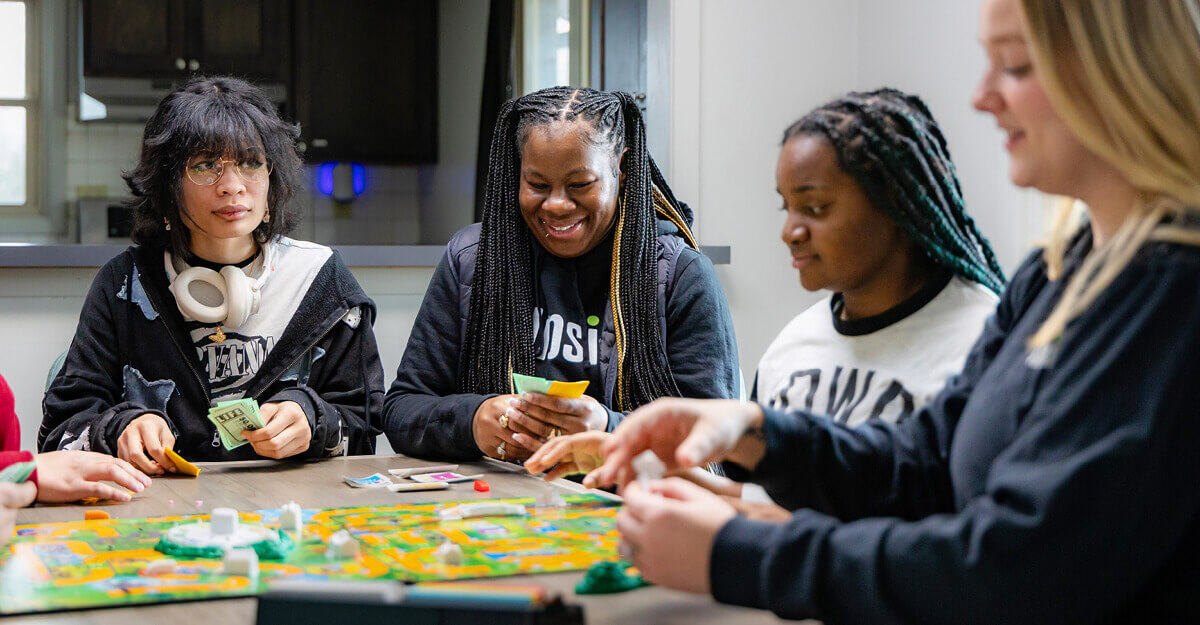Healing from trauma doesn’t just happen in therapy rooms — it also happens on basketball courts, in art sessions, during board games and on playgrounds. For kids and teens in crisis, play isn’t a luxury. It’s essential.

Children who come to our residential programs often arrive carrying more than just some luggage. They bring with them the weight of instability, neglect, abuse or other life-altering experiences. Our programming provides immediate safety and stability and offers opportunities for kids to be kids again.
Playtime Matters
Play may look like downtime to an adult, but to a child, it’s how they process the world around them. The American Academy of Pediatrics emphasizes that play is critical to healthy brain development and provides a natural outlet for children to manage stress, explore emotions and build resilience.
For children who have experienced trauma, fun and games entertain while helping rewrite the brain and promote emotional regulation, decision-making and healthy social interactions. It could be creating chalk art, playing disc golf or painting with their peers. These experiences help restore something trauma often steals: joy.
What Play Looks Like at Ellipsis
In our programs, play is woven into everyday activities. Kids engage in structured recreation, free play and group activities to build trust, creativity and connection.
The youth we serve range in age and background; some are here due to homelessness and others due to family issues and developmental concerns. No matter their story, each young person receives individualized care that includes therapeutic services, education support, medical attention, and the freedom to be a child in a secure and enriching space.
Through games, crafts, sports and even shared laughter while enjoying a meal, we see kids begin to rebuild their confidence and learn how to regulate their emotions. Play can help them reclaim a sense of control and feel safe enough to express who they are and what they need.
The Science Behind Play
Research shows trauma can negatively affect a child’s ability to engage in typical developmental processing, including the ability to communicate feelings, develop problem-solving skills and build relationships.
“That’s why in play therapy, the therapist joins the child in their creative, imaginative and playful world to gain a better understanding of what issues the child has and works with them to resolve the trauma,” Foster Care Associates says. “Children use play to express themselves, act out feelings, solve conflicts and understand relationship dynamics.”
Especially in therapeutic settings, play can become a bridge — a way for kids and teens to express what they might not be able to say out loud.
At Ellipsis, our staff are trained to recognize when a game is more than a game. When a child is testing boundaries in a board game, they might be working through trust issues. When they shut down during a team activity, they might be expressing anxiety or fear. And when they crack a smile for the first time or invite someone else to join them in play, we can see the healing happen.
Every Child Deserves a Place To Heal
We know that for many Iowa children, having the chance to play and simply be a kid in a safe environment with their families isn’t a given. And providing that care here in our space isn’t easy. It costs approximately $300 per child per day to offer the full range of services across our campuses.
We understand not everyone can give financially, and there are other meaningful ways to support our work. Donations of in-kind items, such as sports equipment, art supplies, games, books and hygiene items, help meet the daily needs of the children we serve. These simple things can spark smiles and start conversations. They can also provide the foundational building blocks for our youth to create a better future.
Learn more about what we need and how to donate items on our In-Kind Donations page.
We believe in the power of play because when a child has the chance to laugh, run, imagine, create and belong, they begin to believe in themselves again. And that belief can change everything.
